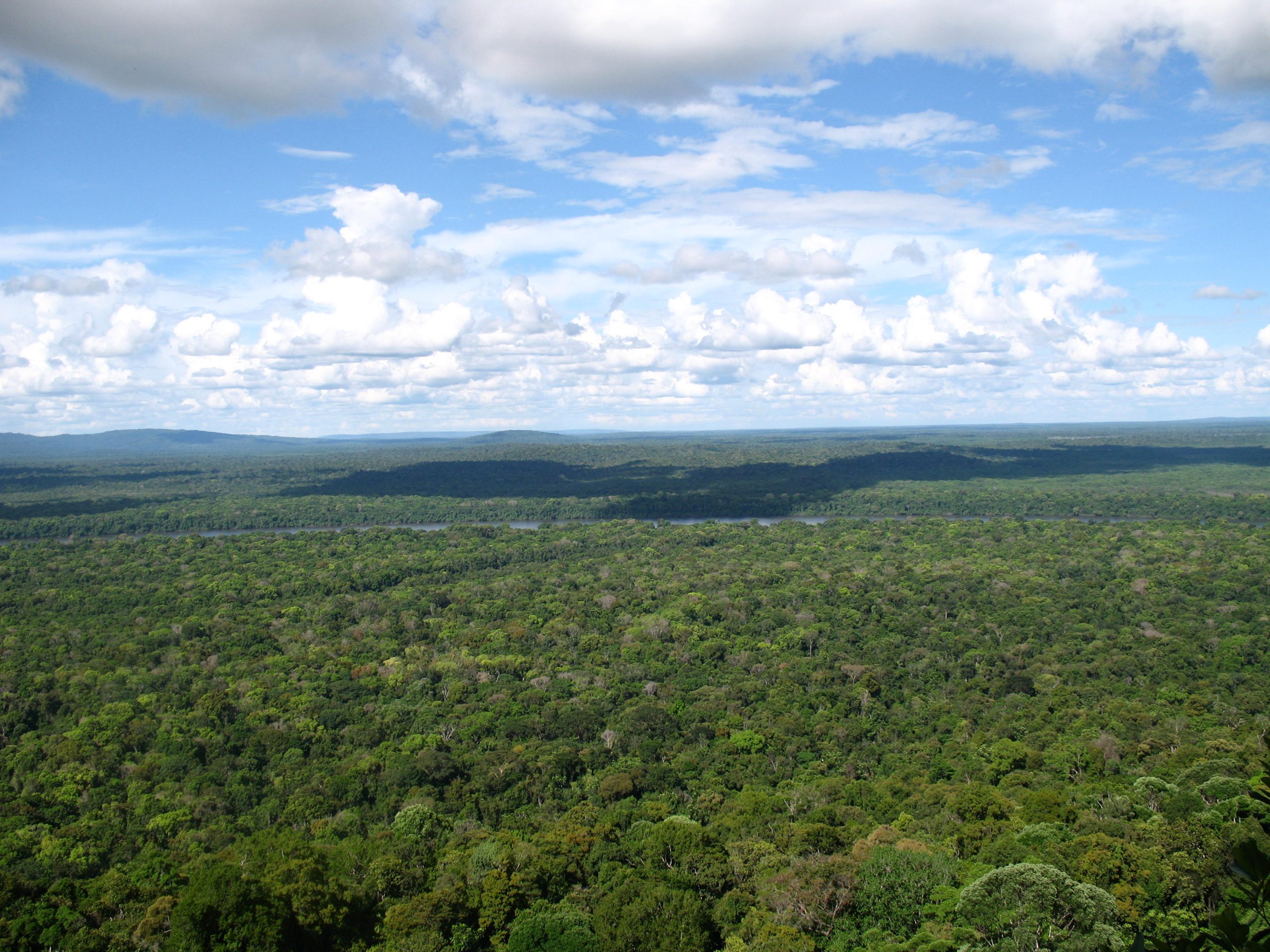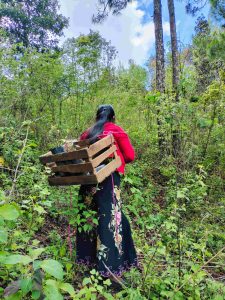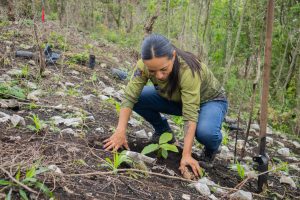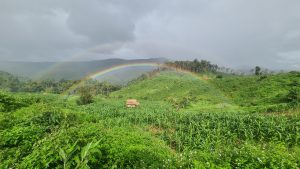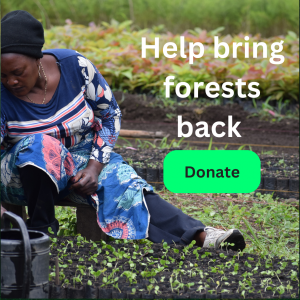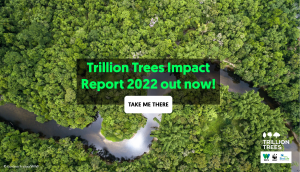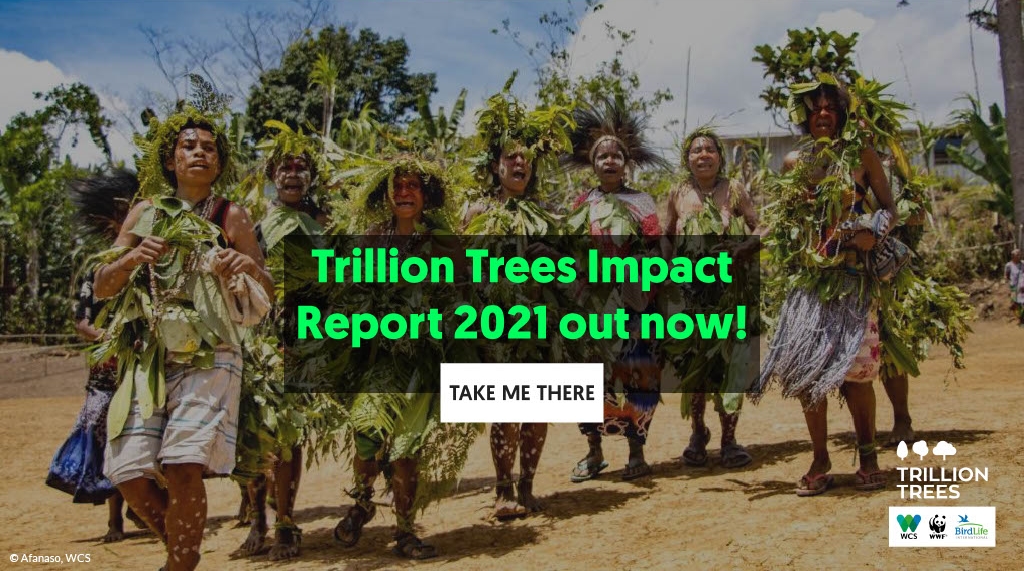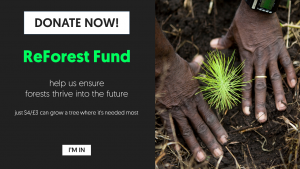By John Lotspeich, Executive Director, Trillion Trees
If you follow the news headlines about forest degradation, it’s easy to despair. But the first four years of Trillion Trees have shown there are reasons to hope — perhaps even 20 billion reasons, as our Executive Director John Lotspeich explains.
I grew up in Louisiana, a rural, slow-paced sort of place, where trees were essentially a cash crop, and timber rights were used to top up family finances. I don’t remember any conversations about renewing the landscape or making stocks last.
Decades later, I spent a formative year in France, lodging with the Denis family, who tended their woodland plot knowing that their lives — and those of their children and grandchildren — depended upon it. Five or even ten years ahead, they would studiously select the best trees to harvest, nurturing their corner of nature so that it would sustain them for generations to come. My French may be rustier these days, but the phrase ‘marquage de bois’ has stuck in my mind ever since. It was a ‘mark’ of longevity, of planning and of continuation.
I thought of the Denises and their positive, active engagement with the land when considering the launch of the UN Decade on Ecosystem Restoration and reflecting on the first four years of the Trillion Trees partnership. Like everyone, I find listening to the environment news a struggle: the world is still losing 10 billion trees annually, while the Amazon rainforest is being felled faster than in any year since 2008. But if you begin to despair, I heartily recommend looking behind the headlines to seek out the good news: places where good conservation is happening. The ability of ‘nature-based solutions’ to tackle the triple threat that assails our planet has always been there, but has entered the mainstream, and a rising tide of inspiring projects are proving that nothing works harder than healthy native forests to balance the climate, enhance livelihoods and protect the stunning array of flora and fauna that make life possible and so magnificent.
For our part, Trillion Trees, as you can see in our recently published Impact Report (trilliontrees.org/impact-report-2020), has helped protect or restore more than 20 billion trees since we forged our ‘joint venture for forests’. More importantly we’ve been able to measure the positive real-world outcomes from across all our forest landscapes: the 402m hectares of forest that our partners work in are storing 104 gigatonnes of CO2, helping to protect 2,485 key wildlife indicator species, and touching 66 million people who live among and near them. And we are far from the only ones putting hope into the system. Around the world, wherever nations have decided to take action, the news really is cheering, and shows that with sustained effort we can make a difference. The report ‘Forests for the Future’ published last week, by our partner WWF, reveals valuable insights and lessons learned on forest restoration at scale through projects that are creating a tangible impact.
I also see this in the visionary leaders we work with in Tanzania and Indonesia, for example — and in Colombia, where in 2018 the Trillion Trees partners helped forge a way, working with the government and other NGOs, to protect and restore the world’s largest tropical rainforest national park, the Serranía de Chiribiquete, ancestral home of the jaguar. Critically, that work is now ballooning into a $200 million collaboration that will secure 15 million hectares for nature and people.
I detect parallels in Bolivia, where a partnership with the municipality and similar results-focused conservation groups have created Bajo Madidi, a vast swathe of protected rainforest, savannah and wetland. And there is enormous reason to hope in the commitment of companies like Unilever, which this April announced a new ‘green path’ that will not merely sustain natural resources but regenerate them, increasing biodiversity and developing climate solutions, as well as improving the lives of their farmers.
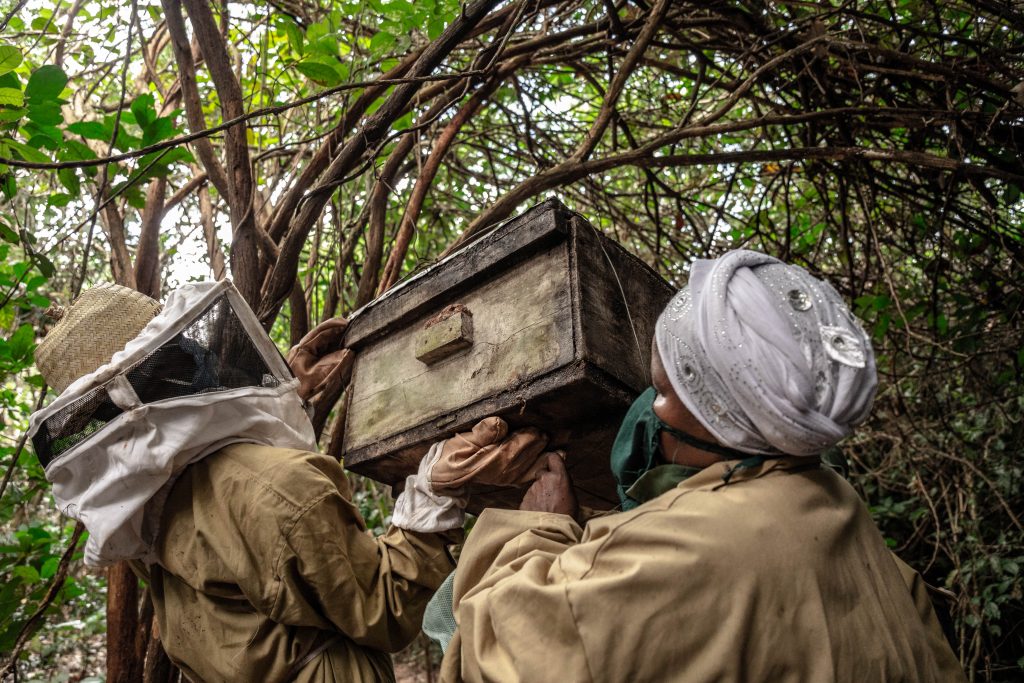
All good conservation is both grounded in science and deeply embedded in the communities where it operates — for while a fast dollar might get a tree in the ground, as Tabi Joda from One Billion Trees for Africa says, “you must also grow that tree.” Take, for example, Trillion Trees’ project in the Peruvian Amazon, where our partners at the Center for Amazonian Scientific Innovation are experimenting with biocarbon to restore life to soils degraded by illegal gold-mining. Or in the vast Lomphat sanctuary, where NatureLife Cambodia’s wildlife-friendly rice-farming scheme boosts village incomes and safeguards the critically endangered giant ibis. I am especially inspired by the work of the Tanzania Forest Service on the coast near Dar es Salaam, where our funding is helping local women to start up beekeeping businesses, boosting forest pollination and female empowerment with a single investment.
We must all stay positive, focus on delivering impactful programming, and begin to take the good news forward: we CAN succeed. The very first thing we must do is change the way we live on this planet, and while I won’t repeat here the eloquent arguments of Greta Thunberg and David Attenborough, long experience has taught our people that the best action of all is not to deforest in the first place. Intact forests remove a quarter of total global carbon emissions every year — 10 billion tonnes — and are home to 80% of the planet’s terrestrial biodiversity.
Over the next five years, Trillion Trees will work tirelessly to do our part. We’ve committed to scale up our impact even further, pledging to move 35 million hectares of threatened habitat into improved protection and to bolster the stewardship of 70 million more. The plight of our forests remains grave, the need urgent, and there is no quick fix. But beneath the despairing headlines is reason to hope: our Trillion Trees partners know it, Joe Biden knows it, our colleagues at 1t.org at the World Economic Forum know it. Success comes from the belief that change is possible, and what excites me is knowing that when conservation happens properly, with the right trees in the right place, and when it makes sense economically to the people on the ground, nature does come back.
In our efforts and achievements lies the first blueprint for lasting change — and the evidence that with wise investment and genuine commitment, the fight to end the loss of the world’s forest cover can indeed be won.
Blog originally published on Medium (@1trilliontrees) on 1 June, 2021: https://1trilliontrees.medium.com/forests-for-hope-why-we-should-stay-positive-and-continue-the-fight-b17d5938f5ff

